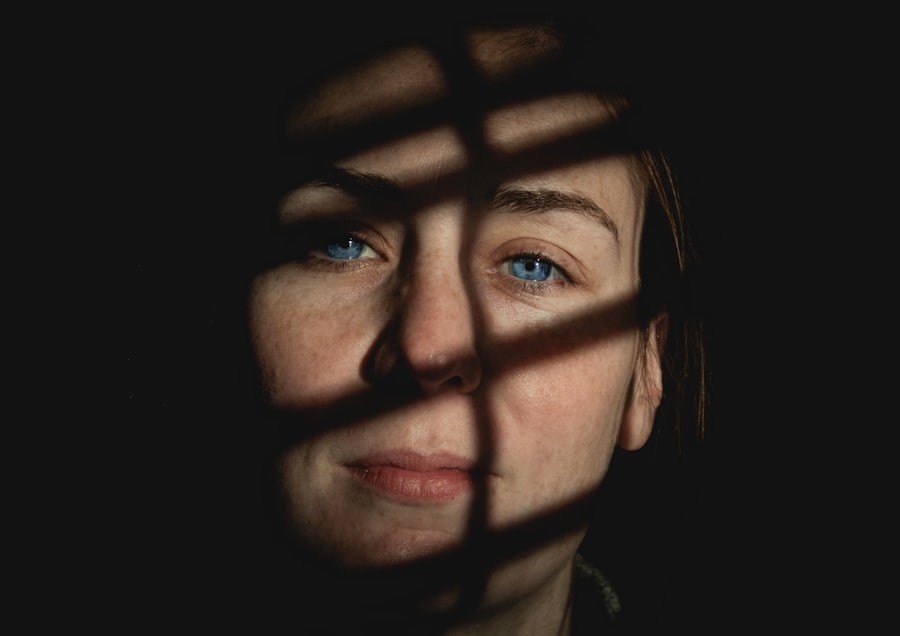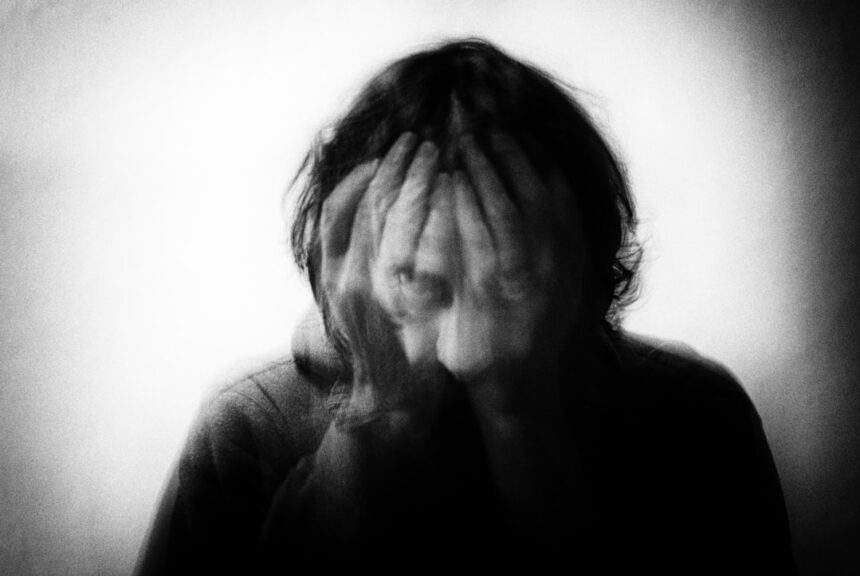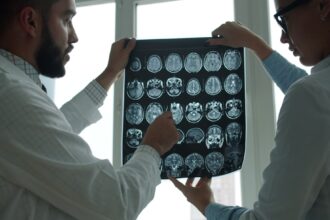Depersonalization-Derealization Disorder (DPDR) is a complex mental health condition that can leave you feeling detached from your own thoughts, feelings, and sense of self. You may experience a sense of unreality regarding your surroundings, as if the world around you is not quite real. This disorder can manifest in various ways, leading to feelings of disconnection that can be both unsettling and confusing.
It often occurs as a response to extreme stress or trauma, serving as a coping mechanism that allows you to distance yourself from overwhelming emotions or experiences. The experience of depersonalization can make you feel as though you are observing yourself from outside your body, while derealization can create a sense that the world around you is distorted or dreamlike. These sensations can be fleeting or persistent, and they can significantly impact your daily life.
Understanding DPDR is crucial for recognizing its symptoms and seeking appropriate help, as many individuals may not even realize they are experiencing a recognized disorder.
Key Takeaways
- Depersonalization-Derealization Disorder is a mental health condition characterized by feeling detached from oneself and the surrounding environment.
- Symptoms of Depersonalization-Derealization Disorder include feeling like an outside observer of one’s thoughts and actions, experiencing a sense of unreality, and emotional numbness.
- Depersonalization-Derealization Disorder can significantly impact daily life, leading to difficulties in relationships, work, and overall functioning.
- Reddit provides a supportive community for individuals with Depersonalization-Derealization Disorder to seek validation, share experiences, and find understanding.
- Coping strategies and self-care tips shared by Reddit users include mindfulness techniques, grounding exercises, and seeking professional help for therapy and medication.
Understanding the Symptoms of Depersonalization-Derealization Disorder
The symptoms of DPDR can vary widely from person to person, but they generally fall into two main categories: depersonalization and derealization. When you experience depersonalization, you might feel disconnected from your thoughts or body, as if you are watching yourself in a movie. You may notice that your emotions feel muted or that you have difficulty connecting with your own identity.
This can lead to feelings of confusion and anxiety, as you grapple with the sensation of being an observer in your own life. On the other hand, derealization involves a sense of detachment from your environment. You might perceive the world around you as foggy, dreamlike, or distorted.
Familiar places may seem unfamiliar, and everyday objects may appear strange or unreal. These symptoms can be distressing and may lead to increased anxiety or panic attacks, especially if you are unsure about what is happening to you.
The Impact of Depersonalization-Derealization Disorder on Daily Life

Living with DPDR can significantly affect various aspects of your daily life. You may find it challenging to engage in social situations, as the feelings of detachment can make it difficult to connect with others. This disconnection can lead to isolation, as you might avoid social interactions out of fear that others will not understand what you are experiencing.
Moreover, DPDR can interfere with your ability to focus on tasks or responsibilities. You may find it hard to concentrate at work or school, leading to decreased productivity and frustration.
Everyday activities that once brought you joy may feel dull or uninteresting, further contributing to a sense of hopelessness. Understanding how DPDR impacts your life is essential for developing coping strategies and seeking support.
Seeking Support and Validation on Reddit
| Subreddit | Number of Subscribers | Number of Posts | Average Comments per Post |
|---|---|---|---|
| r/mentalhealth | 500,000 | 10,000 | 20 |
| r/depression | 700,000 | 15,000 | 25 |
| r/anxiety | 400,000 | 8,000 | 18 |
Reddit has become a valuable platform for individuals experiencing DPDR to seek support and validation from others who understand their struggles. Subreddits dedicated to mental health provide a space where you can share your experiences, ask questions, and connect with others who have similar feelings. This sense of community can be incredibly comforting, as it allows you to realize that you are not alone in your experiences.
Engaging with others on Reddit can also provide insights into different coping mechanisms and strategies that have worked for others. You may find comfort in reading about shared experiences and discovering that many people have navigated similar challenges. The anonymity of Reddit allows for open discussions about mental health without the fear of judgment, making it an ideal space for seeking support.
Coping Strategies and Self-Care Tips Shared by Reddit Users
Many Reddit users have shared valuable coping strategies and self-care tips that have helped them manage their symptoms of DPDR. One common suggestion is the practice of mindfulness and grounding techniques. These methods encourage you to focus on the present moment and reconnect with your surroundings.
Simple exercises like deep breathing, focusing on physical sensations, or engaging in activities that require concentration can help anchor you in reality. Another popular strategy involves maintaining a routine that includes regular physical activity and healthy eating habits. Exercise has been shown to improve mood and reduce anxiety, which can be particularly beneficial for those experiencing DPDR.
Additionally, prioritizing sleep and establishing a consistent sleep schedule can help regulate your emotions and improve overall well-being. By incorporating these self-care practices into your daily life, you may find relief from some of the distressing symptoms associated with DPDR.
Therapeutic Techniques and Professional Help for Depersonalization-Derealization Disorder

While self-care strategies can be helpful, seeking professional help is often essential for managing DPDR effectively. Therapists trained in cognitive-behavioral therapy (CBT) or other therapeutic techniques can provide valuable support tailored to your specific needs. CBT focuses on identifying negative thought patterns and replacing them with healthier perspectives, which can be particularly beneficial for those struggling with feelings of detachment.
In some cases, medication may also be prescribed to help alleviate symptoms associated with DPDR. Antidepressants or anti-anxiety medications can be effective in managing underlying conditions that contribute to depersonalization and derealization experiences. Collaborating with a mental health professional allows you to explore various treatment options and develop a comprehensive plan for recovery.
Lifestyle Changes and Habits to Manage Depersonalization-Derealization Disorder
Making lifestyle changes can play a significant role in managing DPDR symptoms effectively. One important aspect is reducing stress through relaxation techniques such as yoga, meditation, or deep breathing exercises. These practices can help calm your mind and body, making it easier to cope with feelings of detachment when they arise.
Additionally, fostering healthy relationships and social connections is crucial for combating feelings of isolation associated with DPDR. Surrounding yourself with supportive friends and family members who understand your experiences can provide a sense of belonging and validation. Engaging in hobbies or activities that bring you joy can also help ground you in reality and create positive experiences that counteract feelings of detachment.
Finding Community and Connection with Others on Reddit
The sense of community found on Reddit can be a powerful tool for individuals dealing with DPDR. By participating in discussions and sharing your experiences, you not only validate your own feelings but also contribute to the collective understanding of this disorder. Many users express gratitude for the support they receive from others who truly understand what they are going through.
Connecting with others who share similar experiences fosters a sense of belonging that is often hard to find elsewhere. You may discover friendships that extend beyond the digital realm, providing opportunities for real-life connections with individuals who understand the nuances of living with DPDR. This sense of community can be instrumental in combating feelings of isolation and stigma associated with mental health struggles.
Overcoming Isolation and Stigma Associated with Depersonalization-Derealization Disorder
Overcoming the isolation and stigma associated with DPDR requires courage and vulnerability. Many individuals feel ashamed or embarrassed about their experiences, fearing judgment from others who may not understand the disorder. However, sharing your story—whether on Reddit or in other supportive environments—can help break down these barriers.
By openly discussing your experiences with DPDR, you contribute to raising awareness about mental health issues and fostering understanding among those who may not be familiar with the disorder. This openness not only helps reduce stigma but also encourages others to seek help when they need it. Remember that your experiences are valid, and sharing them can empower both yourself and others who may be struggling in silence.
Stories of Recovery and Hope from Reddit Users
Many Reddit users have shared their stories of recovery and hope regarding their experiences with DPDR. These narratives often highlight the importance of seeking help, whether through therapy, medication, or community support. Hearing about others’ journeys can inspire you to take steps toward your own recovery.
These stories often emphasize that recovery is not linear; there may be setbacks along the way, but progress is possible. Users frequently share moments of clarity when they felt more connected to themselves or their surroundings after implementing coping strategies or engaging in therapy. These accounts serve as reminders that healing is achievable and that there is hope even in the midst of challenging experiences.
Resources and Further Support for Individuals with Depersonalization-Derealization Disorder
If you are navigating the complexities of DPDR, numerous resources are available to support you on your journey toward healing. Mental health organizations often provide educational materials about depersonalization-derealization disorder, offering insights into symptoms, treatment options, and coping strategies. Additionally, online forums like Reddit serve as valuable platforms for connecting with others who share similar experiences.
Engaging in these communities can provide comfort and validation while also offering practical advice from those who have walked similar paths. Remember that seeking professional help is also crucial; therapists specializing in trauma-informed care can guide you through the healing process effectively. In conclusion, understanding depersonalization-derealization disorder is essential for recognizing its impact on daily life and seeking appropriate support.
By connecting with others on platforms like Reddit, sharing coping strategies, and exploring therapeutic options, you can take meaningful steps toward managing your symptoms and finding hope in your journey toward recovery.
If you’re exploring ways to manage depersonalization-derealization disorder, you might find valuable insights in online communities like Reddit, where individuals share personal experiences and coping strategies. For a more structured approach, consider reading this article on Unplugged Psychology, which offers professional advice and therapeutic techniques to help alleviate symptoms. This resource can complement the peer support found on Reddit by providing evidence-based methods to address the disorder effectively.
Learn More About Depersonalization & Derealization
FAQs
What is depersonalization-derealization disorder (DPDR)?
Depersonalization-derealization disorder (DPDR) is a mental health condition characterized by feeling detached from oneself (depersonalization) and/or feeling detached from the world around them (derealization). It can be distressing and impact a person’s daily functioning.
What are the symptoms of depersonalization-derealization disorder?
Symptoms of DPDR may include feeling like an outside observer of one’s thoughts, feelings, and body (depersonalization), feeling like the world is unreal or distorted (derealization), emotional numbness, and a sense of disconnection from oneself and others.
What are some common triggers for depersonalization-derealization disorder?
Common triggers for DPDR may include stress, trauma, anxiety, depression, substance abuse, and certain medications. It can also occur without an identifiable trigger.
How is depersonalization-derealization disorder diagnosed?
DPDR is diagnosed based on a thorough assessment by a mental health professional, which may include a physical exam, psychological evaluation, and discussion of symptoms and experiences. It is important to rule out other potential causes for the symptoms.
What are some treatment options for depersonalization-derealization disorder?
Treatment for DPDR may include therapy (such as cognitive-behavioral therapy), medication (such as antidepressants or anti-anxiety medications), stress management techniques, and lifestyle changes. It is important to work with a mental health professional to develop an individualized treatment plan.
Can depersonalization-derealization disorder be cured?
There is no specific “cure” for DPDR, but many people can experience significant improvement in their symptoms with appropriate treatment and support. It may take time and effort to find the right combination of strategies that work for each individual.
Are there any self-help strategies for managing depersonalization-derealization disorder?
Some self-help strategies for managing DPDR may include practicing relaxation techniques, engaging in regular physical activity, maintaining a healthy lifestyle, seeking social support, and learning to recognize and challenge negative thought patterns. However, it is important to seek professional guidance as well.




